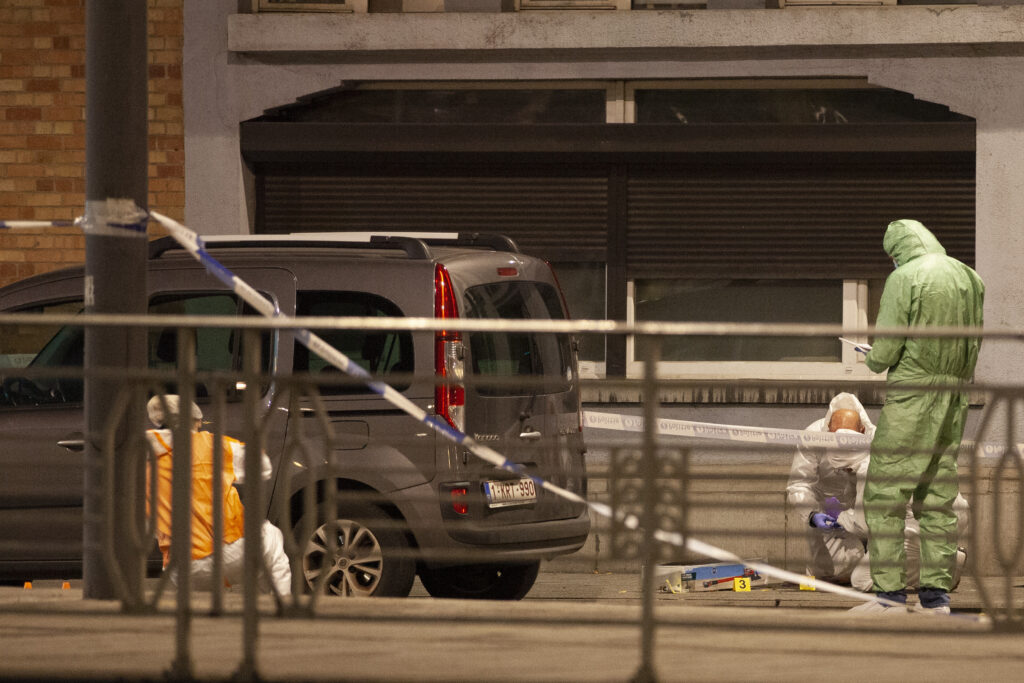17/10/2023
17/10/2023

BRUSSELS, Oct 17: Police in Belgium on Tuesday shot dead a suspected Tunisian extremist accused of killing two Swedish soccer fans in a brazen shooting on a Brussels street before disappearing into the night.
Hours after a manhunt began in the Belgian capital, Interior Minister Annelies Verlinden posted on X, formerly Twitter, that "the perpetrator of the terrorist attack in Brussels has been identified and has died.”
She thanked Belgium's intelligence and security services, as well as the public prosecutor’s office, "for their swift and decisive action last night and this morning.” The man was shot by police in the Schaerbeek neighborhood near where the rampage took place. The weapon used in the assault was recovered.
Amateur videos posted on social media of Monday’s attack showed a man wearing an orange fluorescent vest pulling up on a scooter, taking out a large weapon and opening fire on people getting out of a taxi before chasing them into a building to gun them down. He was also filmed calmly loading his weapon as cars drove slowly by.
Questions remain unanswered over how a man who was on police files, thought to be radicalized and being sought for deportation was able to obtain a military weapon and launch such an attack.
Federal Prosecutor Frederic Van Leeuw described how the suspect, a 45-year-old man who wasn't identified, had posted a video online claiming to have killed three Swedish people.
The suspect is alleged to have said in the video that, for him, the Quran is "a red line for which he is ready to sacrifice himself.”
Sweden raised its terror alert to the second-highest level in August after a series of public Quran burnings by an Iraqi refugee living in Sweden resulted in threats from Islamic militant groups.
Belgian prosecutors said overnight that nothing suggested the attack was linked to the war between Israel and Hamas.
According to Justice Minister Vincent Van Quickenborne, the suspect was denied asylum in 2019. He was known to police and had been suspected of involvement of human trafficking, living illegally in Belgium and of being a risk to state security.
Information provided to the Belgian authorities by an unidentified foreign government suggested that the man had been radicalized and intended to travel abroad to fight in a holy war. But the Belgian authorities were not able to establish this, so he was never listed as dangerous. (AP)


